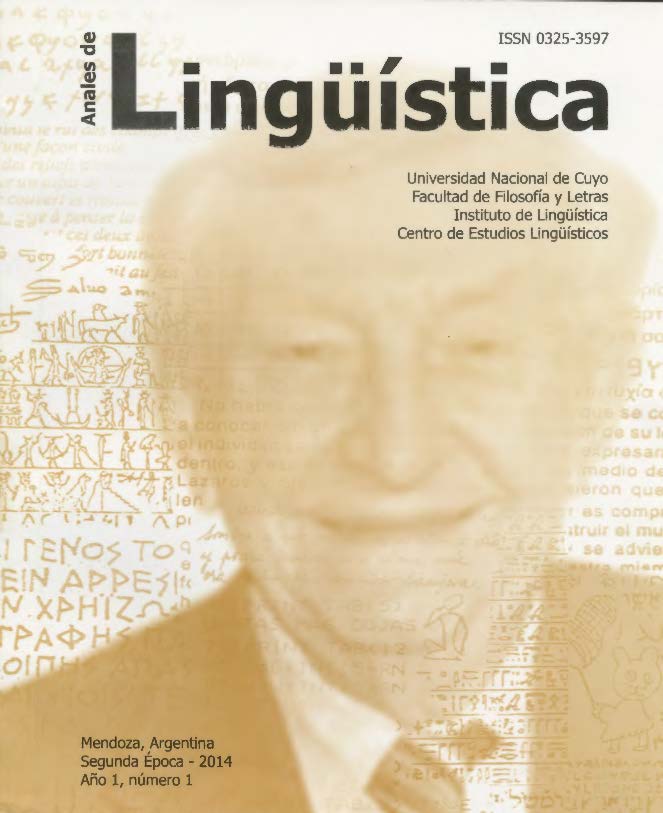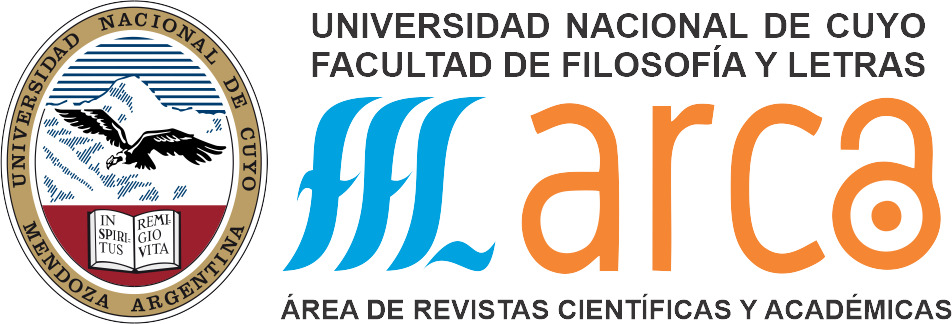Markers of arrangement versus markers of refonnulation in the PhD dissertation colloquia in Spanish
Keywords:
discourse markers, inferences, oral scientific-academic discourseAbstract
In this paper we contrast the use of two kinds of organizational discourse markers: ordering markers and reformulation markers in PhD dissertation colloquia in Spanish. The aim is to analyze the meaning or processing ins1ruction that guide inferences, according to the direction in which the necessary information to make inferences is seeking. The hypothesis is that ordering markers allow the speaker to ínstruct processing forward , guiding the audience towards predictive inferences that establish relations with subsequent discourse. Reformulation markers guide the audience towards retrospective inferences, backward, establishing relations with the previous discourse. The analysis aims at describing the effect of shifts in the direction of processing in the organization of a type of oral academic-scientific discourse in videotaped defenses of twelve different disciplines thesis defended at the National University of Cuyo (Mendoza, Argentina) between 2007 and 2010. We contrast the differences in the use of markers in different discursive units:
discursive members, interventions and exchanges.
References
Cornish, F. (1999). Anaphora, Discourse, and Undorstanding. Evidence from English and French New York: Oxford University Press.
Corpus UNCUYO de Defensas de Tesis (2007-2012). Desde 2009, filmado por personal técnico del Centro de Documentación Audiovisual (CDA) de la Universidad Nacional de Cuyo, bajo la coordinación de Gisela E. Müller. Disponible en el CDA UNCuyo. Transcripciones a cargo de miembros de los proyectos de Investigación SeCTyP-UNCuyo 06/G497. 06/G576 y 06/G685.
Escudero, l. y J . León (2007). Procesos inferenciales en la comprensión del discurso escrito. Influencia de la estructura del texto en los procesos de comprensión. Signos 40 (64), 311-336.
Garcés Gómez, P. (2008). La organización del discurso: marcadores de ordenación y de reformulación. Madrid: Iberoamericana, Vervuert.
Givón, T. (2005). Context as Other Minds. The Pragmatics of Sociality, Cognition and Communication. Amsterdam/Philadelphia: John Benjamins Publishing Company.
Gutierrez Calvo, M. (2003). Memoria operativa e Inferencias en la comprensión del discurso. En: León, J. , ed. Conocimiento y discurso (pp. 223-138). Madrid: Pirámide.
Langacker, R. (2000). Grammar and Conceptualizalion. Berlin-New York: Mouton de Gruyter.
León, J. A. (2001) Las inferencias en la comprensión e interpretación del discurso. Un análisis para su estudio e investigación. Signos. 34 (49-50) 113- 125.
León J. A., coord. (2003). Conocimiento y discurso. Madrid. Pirámide.
Martín Zorraquino, M.A y J. Portolés Lázaro (1999) Los marcadores del discurso. En Bosque. l. y Demonte, V. (Eds.). Nueva gramática descriptiva de la lengua española. vol. 3. 4051 - 4213. 4056. Madrid: Espasa Calpe.
Portolés, J. (2001). Marcadores del discurso. Barcelona: Ariel.
Portolés, J. (2004). Consideraciones metodológicas para el estudio del significado de los marcadores del discurso En: Arnoux, E. y Garcia Negroni, M., eds. Homenaje a Oswald Ducrot (pp. 315-336) Buenos Aires: Eudeba.
Trabasso. T. y J . Magliano. (1996). Conscious understanding during text comprehension Discourse Processes, 21, 255- 287.
Downloads
Published
How to Cite
Issue
Section
License
Copyright (c) 2022 Liliana Cubo de Severino
Esta obra está bajo una Licencia Creative Commons Atribución 2.5 Argentina.
Los/as autores/as que publican en esta revista están de acuerdo con los siguientes términos:
1. Los/as autores conservan los derechos de autor y garantizan a la revista el derecho de ser la primera publicación del trabajo bajo una licecncia Creative Commons Atribución 2.5 Argentina (CC BY 2.5 AR) . Por esto pueden compartir el trabajo con la referencia explícita de la publicación original en esta revista.
2. Anales de lingüística permite y anima a los autores a difundir la publicación realizada electrónicamente, a través de su enlace y/o de la versión postprint del archivo descargado de forma independiente.
3. Usted es libre de:
Compartir — copiar y redistribuir el material en cualquier medio o formato
Adaptar — remezclar, transformar y construir a partir del material para cualquier propósito, incluso comercialmente.












